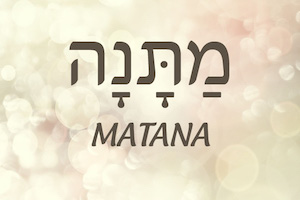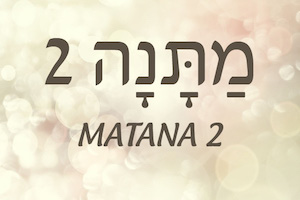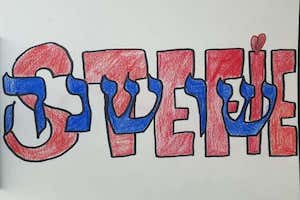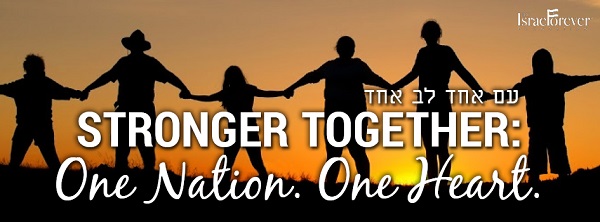Names of Israel: Tracing our History and Identity
By Izzy Sakhaie
Today we are known as Jews, but in the Torah, we were known as Hebrews and Israelites. So who are we really? Hebrews, Israelites, Children of Israel, Jewish people, Jews? Could this disparity of labels be the reason for the identity crisis we face as a nation today?
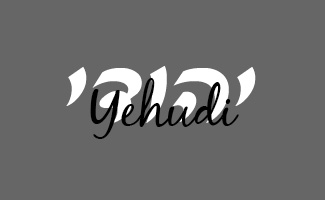
In the Bible, Abraham was identified as the first of the Ivrim - עברים, or “Hebrews” as it is translated into English. Every generation after continued to cherish the name and identity as heirs to Abraham’s faith. To be a Hebrew implied one’s loyalty to Hashem, strength in the face of danger and perseverance in the face of numerous challenges generation after generation. The term itself was derived from the word for “passing” ie a people passing through lands on their journey to a home.
At this point in time there was no reference of Israelis or Jews, two of the most common nomenclatures used in today’s modern society. However, if we follow Abraham’s genealogy, we find the root of the word Israeli. Isaac was Abraham’s son and Jacob his grandson, whose name was later changed to Israel (Gen. 32:28; 46:1).
Since this time Israel’s descendants were known as the children of Israel or Israelites. Israel’s (Jacob’s) family moved to Egypt where his son Joseph was second in command to the Pharaoh. In Egypt the Israelites grew to 2 million people when they subsequently migrated to Canaan in the Middle East under the leadership of Moses and Joshua.
Following the lineage further, we find that the root of the word Jew comes from another of our forefathers’ direct descendents. The Hebrew noun “Yehudi” (“Jew” in English) is derived from the name Judah, who was one of Jacob’s twelve sons. Judah was the ancestor of one of the tribes of Israel, which was named after him. “Yehudi” appears 76 times in the books of the Old Testament (*See end of article for references).
While originally, the word referred to members of the tribe of Judah, it later described anyone from the kingdom of Judah. This would include those from the northern kingdom of Israel who moved to Judah, including Mordecai’s ancestors for example, the heroes of the Chanukah story. Also, as those who returned after the exile settled in Judea, they were called Jews regardless of their ancestral tribe.
The first reference to “Jews,” however, only appears in the Purim story when Mordechai is introduced as “HaYehudi,” the Jew. The words chosen in Jewish texts are always done so deliberately and to convey meaning.
The change in the name reflects a change in the people who originally bore the name Hebrews - a change in their identity, a change in their social practices, a change in their self-perception. Perhaps it is an indication of a people who continue to be unique on to themselves, although they are disconnected from their ancestral homeland - Judea.
Flash forward several hundred years, in 70 AD, the Romans destroyed Jerusalem and in 134 AD the Romans attacked again and the Jews were killed, enslaved and dispersed to surrounding countries including Europe and North Africa. Since this time, Judea - renamed Palestine by the Romans for the explicit purpose of disassociating the land from its indigenous peoples - has been ruled by the Byzantine Empire, the Islamic Empire, the Crusaders, the Mamluk Empire, the Ottoman Empire, and the British Empire.
Again and again, the Jews were labeled as an enemy, a threat, persecuted and driven out of many regions culminating in the Holocaust. Despite these difficulties, the Jewish people maintained their identity, never dispossessing themselves of their faith, identity, community or remembrance of Zion, Judea and the Land of Israel in their thousands-year old exile in foreign lands.
In the New Testament, the words, “Hebrews”, “Israelites”, and “Jews” are used interchangeably to describe the descendants of Jacob (Jn. 4:9; 2 Cor. 11:22). And this is the case today – the words “Hebrews”, “Israelites”, and “Jews” are used as synonyms. Living amongst predominantly Christian communities, these names were used repeatedly in both Biblical and contemporary references, including during the outgrowth of anti-Jewish rhetoric that has perpetuated throughout history.
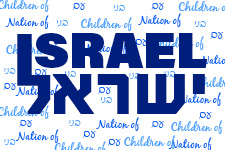
In the Koran as well, the Jews are referred to as the children of Israel, Jews, Israelites. After the Enlightenment, primarily in France, “Israelite” came to designate Jews in general, eventually referring specifically to assimilated Jews. And for the common citizen of the world, as evidenced in literature, poetry, prayer and elsewhere, very often the Jewish collective as a whole was referenced as “Israel.”
A most recent evidence of this can be found in a book recently translated and published by Gefen Press, The Wandering Jew has Arrived by journalist Albert Londres. Written in 1929, he continuously references the Jew - both individual and collective - as Israel, and binds the people with their pursuit of a return to their ancestral homeland which he accurately refers to as “Palestine the Land of Israel.”
He traces the response to the Balfour Declaration of 1917 and its influence on the Jews in their pursuit to establish a Jewish State. In this amazing portrait of Jewish life from the perspective of a complete outsider looking in, he declares “For nineteen centuries, a people has waited for this… Israel has been resuscitated!... Israel shouted cries of happiness and Jerusalem exulted with joy.”
As assimilation took root in Jewish communities scattered around the world, the shared legacy of Abraham faded in the hopes of being accepted by the nations in which they lived. Political and social trends increased the tendency to choose similarity over uniqueness, casting aside the very essence of what it meant to be a part of Bnei Yisrael.
Ultimately, the need to procure a safe haven for Jews became evident following the destruction of the Holocaust, and the many years of efforts and international recognition prior to that led to the formal establishment of the State of Israel in 1948.
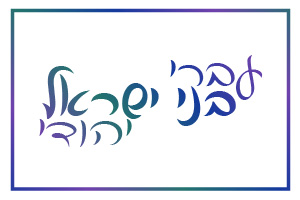
Today, the nomenclature “Jew” remains. In common speech, the word “Jew” is now used to refer to all of the descendants of Jacob and those who adhere to Judaism. It stands for much more than nationality and culture. It stands for more than tradition and history. It stands for more than a homeland and economy. It stands for our eternal connection with G-d, our undying loyalty to the Torah and for the immortality of our people. The nation that survived Haman and the nation that, G-d willing, will forever continue to survive.
As Antisemitism rises around the world it is evermore important that we acknowledge that while we may have had various names throughout history, we are all rooted from the same history; at some point we were all Hebrews, Israelites, and Jews. Today the name “Jew” might be thrown at us, in an attempt to insult us, but this label is a badge of pride, a testament to our ancient legacy and connection to our ancestral homeland.
I wear it with honor. I hope you do too.
Did you know?
76 References to “Yehudi” in the Old Testament:
– 11 times in Jeremiah (written about 600BC), where it describes Judeans,
– Twice in 2 Kings (written about 550BC), where it describes Judeans who lived about 750BC and 590BC,
– Once in Zechariah (written about 520BC), where it may describe both Judeans and Israelites,
– 52 times in Esther (written about 460BC), where it describes those dispersed after the Babylonian invasions and living in the Persian kingdom, including Mordecai a Benjaminite (Est. 2:5; 5:13), and
– 10 times in Nehemiah (written about 430BC), where it describes exiles who returned to Jerusalem.
Discussion Questions:
- Hebrews, Israelites, or Jews - Is there one of these labels that stands out most to you? Why or why not?
- Do you see a stark difference between labeling with one versus the other? Is one more acceptable than the other?
- If you had to define each of these terms, how would you do it?
- Are there any other labels you identify with that connect you to your Judaism? If so, why?
- Do you feel proud to call yourself a Jew?

Izzy Sakhaie graduated from the George Washington University with a major in International Business. She is originally from Great Neck, NY but is currently studying in Jerusalem while also interning with the Israel Forever Foundation.
Recommended for you:
About the Author



